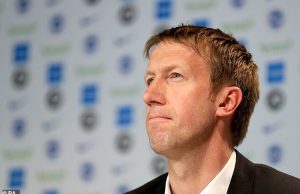David Beckham: The brand charges on but Becks bows out unfulfilled
“Old Time, the greatest and longest established spinner of all!.. his factory is a secret place, his work is noiseless, and his hands are mutes” said Charles Dickens, referring to the commodity of age as an almost haunting process.
There is definitely a chill about the air in 2013, the defining generation of the Premier League era is edging itself to the door. Michael Owen and Jamie Carragher both wave goodbye on Sunday, as does Paul Scholes, accompanied by his manager, who ends his 26 year stint in charge of Manchester United with a game against West Bromwich Albion.
Scholes’s exit leaves Ryan Giggs as the one remaining “Fergie Fledgling”, the one-man contradiction to the words of Dickens, as this week, over in Paris, David Beckham has also announced he is to remove himself from football’s A-list.
His news was inevitably accompanied by numerous replays of his half-way line goal against Wimbledon, as well as that free-kick against Greece that sent a sharp tingle down the most insensitive of spines as it curved into the net, sending England to the 2002 World Cup.
The perspective of ageing can be found in that particular trawl back through the archives as Steven Gerrard and Rio Ferdinand will be the only two survivors from that 2-2 draw, twelve years on, heading back to the drudgery of pre-season in the late-summer.
As football moves on to a brave new era, there was an opportunity to dwell on Beckham’s fine, if not fantastic career. With 6 Premier League titles, a Champions League, league titles in Spain and France and a series of trophies from his time in the United States, Beckham can certainly walk away with a glimmering trophy cabinet, however there has to be a tinge of regret accompanying the nostalgia as he looks back through a career that spanned two decades.
Nearly all of Sir Alex Ferguson’s class of the mid-90s have left Manchester United effusively, Phil Neville and Nicky Butt when first team opportunities stemmed out of reach, Gary Neville when chronic injuries hit and Scholes when father-time has eventually reared his head. That is of course, all but Giggs, who is still soldiering on at the ripe old age of 38, and Beckham, who bucked the trend, leaving United shrouded in controversy and dispute.
Ferguson did not mean to kick that infamous boot at Beckham in the aftermath of a 2003 FA Cup tie against Arsenal, yet it provided the perfect illustration to accompany Beckham’s acrimonious exit to Real Madrid that summer. Beckham had developed “this fashion thing” according to Ferguson, causing him to witness his “transition into a different person”.
In the run up to the World Cup of 2002, after that meeting with Greece, Beckham suffered a foot injury in a challenge with Argentinean Aldo Duscher and the media fanfare began to take pace, almost into insanity, as it rushed Beckham into Sven Goran Eriksson’s plans for Japan and Korea.
Despite his “redemption” against Argentina in Sapporo, Beckham cut an unfit figure, jumping out of a challenge against Brazil in the quarter-finals in the build-up to Rivaldo’s equaliser. Yet England’s presence on the global stage without their captain was simply unthinkable, he had to be there, broken metatarsal or not. “Brand Beckham” had launched and for Manchester United it became too much. “His life changed when he met his wife” Ferguson once said.
Together with his wife, former Spice Girl Victoria Adams, and advisor Stuart Fuller, a behemoth of a marketing campaign was forged. Beckham perfume and clothing ranges were all exposed to the world as he moved to Spain and then the United States, but his dedication to the sport he loved never let up despite the ultra sums of money he was making alongside his on-pitch exploits.
Initially phased out from Real Madrid’s squad by Fabio Capello after his move to the MLS became public, he fought his way back in to the Italian’s thinking to help secure the Spanish title in 2007. Steve McClaren dropped him from his England revolution when he succeeded Sven Goran-Eriksson in 2007 but he was back a year later, lasting until an Achilles injury ruled him out of the 2010 World Cup.
All this came after he fought his way back from the vitriolic low he slumped to after being shown a red card for a faint kick on Diego Simeone at the France ’98 World Cup. Beckham’s persistence and refusal to give-in was peerless.
He filled his off-season in America by moving on loan to AC Milan, Carlo Ancelotti voicing huge support for his relentless professionalism. From lining a tyre on the frame of the goal after training at Manchester United’s old facility at the Cliff and trying repeatedly to bend a free-kick through it, right the way to popping up at Paris St Germain at the age of 38 for one final shot at the big time, Beckham was the footballer who vehemently refused to betray his natural instincts of sheer endeavour and devotion.
It was that ruthless pursuit of excellence that transformed him into one of the very best during the late 90s, early 2000s, which he lit up with his trademark array of spectacular goals and wonderful passes that were consistently inch-perfect. Football’s evolution into the culture of celebrity engrossed him however and Manchester United seemed to be aware of his transformation into the poster boy of this new age of ultra-capitalism at the top of the game.
Despite the 115 caps for England, despite the numerous cups he has won since his exit from Old Trafford, despite the phenomenal work-rate and flawless image he resiliently strived to demonstrate, Beckham’s career wasn’t what it should have been, that should be the most saddening eulogy to an otherwise incredible career.
Written by Adam Gray
Follow Adam on Twitter @AdamGray1250
Please like O-Posts on Facebook
You can follow O-Posts on Twitter @OPosts







0